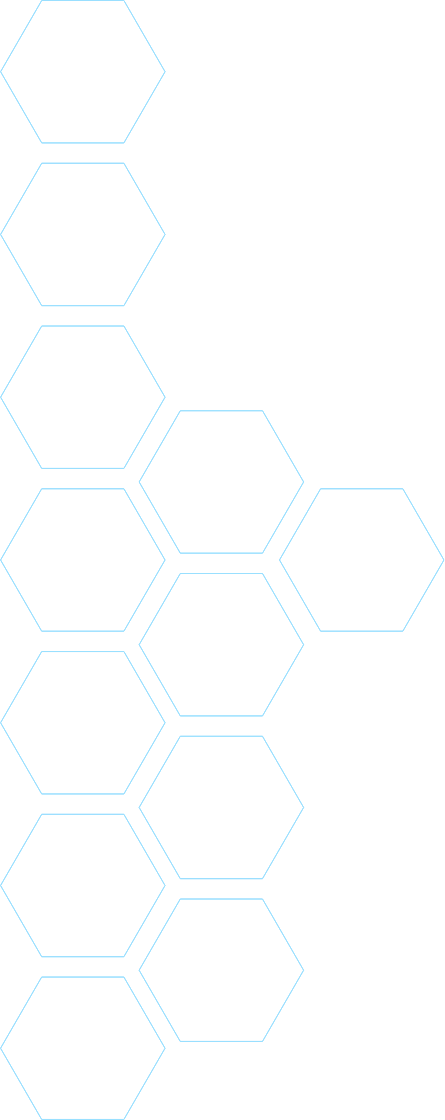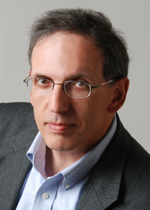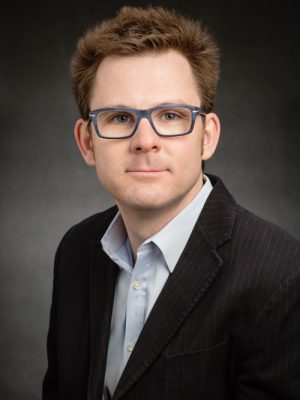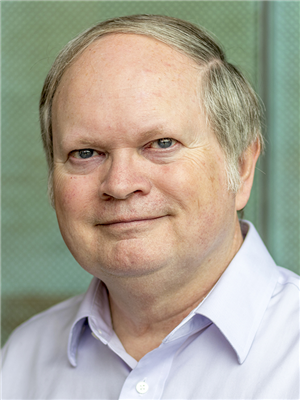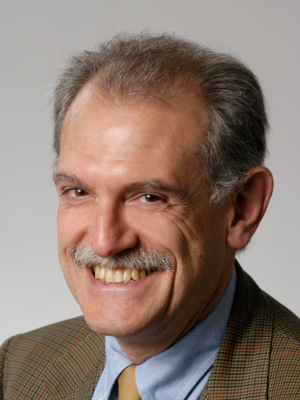October 26 & 28, 2021
Watch Workshop Videos: C3.ai DTI YouTube Channel (From our homepage, scroll down to Workshops)
The Built Environment includes our homes and places of work, and is where we spend most of our lives, most of our energy, and where we generate most of our greenhouse emissions. This impacts our wellbeing, productivity, and health, as well as the health of our entire ecosystem. With ubiquitous sensing, automation, control, huge data aggregations, and distributed intelligence, the Digital Transformation promises to make the Built Environment more efficient, healthy, safe, and productive. But how exactly is this happening, and what are the new vulnerabilities that may come up in this process? Will our privacy be protected? Will it help us fight the next pandemic? Will its benefits spread equitably around a world of diverse climates, cultures, and socioeconomic conditions? This workshop will explore these topics through a series of technical presentations and panel discussions by a diverse set of experts from academia and industry.
ORGANIZER
Costas Spanos (University of California, Berkeley)
SPEAKERS
Adrian Chong (National University of Singapore), Alejandro Dominguez-Garcia (University of Illinois at Urbana-Champaign), Carl Gunter (University of Illinois at Urbana-Champaign), Ruoxi Jia (Virginia Tech), Ming Jin (Virginia Tech), Varun Badrinath Krishna (C3 AI), Burt Mayer (C3 AI), Clayton Miller (National University of Singapore), Alberto Sangiovanni-Vincentelli (University of California, Berkeley), Stefano Schiavon (University of California, Berkeley), Sascha von Meier (University of California, Berkeley)
PROGRAM
(All times are Pacific Time)
Day 1 (Tuesday, October 26)
ABSTRACT
We spend most of our time in built spaces that substantially affect our health, well-being, and productivity. Conditioning the built environment has a large influence on climate change, most of which comes from the energy used to create indoor comfort. In this presentation, I will discuss how we can enhance occupant satisfaction without increasing a building’s environmental impact even further. I will also discuss two major barriers that the digital transformation of buildings is facing: lack of granularity of actuation and lack of automatic interpretability of existing building monitoring systems.
SPEAKER

Stefano Schiavon is an Associate Professor of Architecture and Civil and Environmental Engineering at the University of California, Berkeley and Associate Director of the Center for Environmental Design Research (CEDR). Stefano’s research is focused on finding ways to reduce energy consumption in buildings while improving occupant health, well-being, and productivity. He received a PhD in Energy Engineering and an MS in Mechanical Engineering, both from the University of Padova, Italy.
ABSTRACT
In recent years there has been increasing interest in integrating building energy simulation with operational data to create digital twins of buildings. However, these energy models are often overparameterized and require a comprehensive dataset to represent building systems accurately. In this presentation, I will discuss ongoing efforts to investigate fit-for-purpose modeling and the relationship between data requirements and model credibility.
SPEAKER

Adrian Chong is an Assistant Professor in the Department of the Built Environment at the National University of Singapore. His research interest is in building energy modeling and simulation, focusing on model calibration and uncertainty quantification. At NUS, he leads the Integrated Data, Energy Analysis + Simulation (IDEAS) lab, a multidisciplinary group researching the interaction between building performance simulation, measured data, and machine learning. He is also the subject editor (validation, calibration, and uncertainty) for the journal Building Simulation and an NUS principal investigator at the SinBerBEST program Theme E – Cyber-Physical Testbed.
ABSTRACT
In this talk, I will cover efforts to improve basic programming skills of professionals in Architecture, Construction, and Engineering through the lens of an edX Massive Open Online Course (MOOC). I will also discuss innovative ways to create crowd-sourced machine learning workflows and innovation using methods like the ASHRAE Great Energy Predictor III competition.
SPEAKER

Clayton Miller is an Assistant Professor at the National University of Singapore in the Building and Urban Data Science (BUDS) Lab. He is the Co-Leader of Theme D – Data Analytics at the University of California, Berkeley SinBerBEST2 Lab and the Co-Leader of Subtask 4 of the IEA Annex 79 Occupant-Centric Building Design and Operation (ResearchGate). He holds a Dr. sc. from the ETH Zürich, an MSc. (Building) from the National University of Singapore, and a BSc./Masters of Architectural Engineering (MAE) from the University of Nebraska – Lincoln. He is the former CTO of Optiras Pte. Ltd, a Singapore NRF-funded startup, a former Fulbright Scholar to Singapore at NUS, and a Walter Scott Jr. Scholar at UNL.
ABSTRACT
The quality of training data is a fundamental ingredient toward high-quality models, and ultimately toward useful and reliable machine learning-based applications. However, it is costly to acquire high-quality data and annotate them with accurate labels. In this talk, I will present techniques to reduce annotation cost and improve data quality.
SPEAKER

Ruoxi Jia is an Assistant Professor in the Bradley Department of Electrical and Computer Engineering at Virginia Tech. She earned her PhD in the EECS Department from the University of California, Berkeley in 2018 and a B.S. from Peking University in 2013. Her research interest lies broadly in the span of machine learning, security, privacy, and cyber-physical systems. Her recent work focuses on building algorithmic foundations for data markets and developing trustworthy machine learning methods. She is the recipient of the Chiang Fellowship for Graduate Scholars in Manufacturing and Engineering, the 8108 Alumni Fellowship, the Okamatsu Fellowship, and Virginia’s Commonwealth Cyber Initiative award. She was selected for the Rising Stars in the EECS program in 2017 and her work has been featured in multiple media outlets.
Day 2 (Thursday, October 28)
ABSTRACT
Referring to lessons learned from recent power outages, this presentation will discuss novel strategies for managing electric loads and distributed resources – to act as good citizens on the grid, and to ensure public health and safety in emergencies. It will highlight one approach in particular: the Oakland EcoBlock, an urban community microgrid powered by shared solar and battery storage resources that uses existing utility infrastructure. Beyond a technical proof of concept, this interdisciplinary project aims to create a legal, financial, and social roadmap for simultaneously addressing climate, resilience, and equity.
SPEAKER

Alexandra “Sascha” von Meier is an Adjunct Professor in the Department of Electrical Engineering and Computer Sciences at the University of California, Berkeley and directs the Electric Grid Research program at the California Institute for Energy and Environment (CIEE). She is also a faculty scientist at the Lawrence Berkeley National Laboratory. Her research focuses on power distribution systems, including the application of novel sensing, analytics, and control strategies to facilitate the integration of distributed energy resources. She is the author of a textbook, Electric Power Systems: A Conceptual Introduction. She was previously a Professor of Energy Management & Design in the Department of Environmental Studies and Planning at Sonoma State University. She holds a B.A. in Physics and a Ph.D. in Energy and Resources, both from the University of California, Berkeley.
ABSTRACT
Assurance is integral to trust and conducive to widespread adoption in energy infrastructures. However, such safety and performance guarantees are currently lacking for learning-based control methods, especially when high-capacity models such as deep neural networks are involved. In this talk, I will discuss some recent works towards addressing this challenge.
SPEAKER

Ming Jin is an Assistant Professor in the Bradley Department of Electrical and Computer Engineering at Virginia Tech. He received the B.Eng. degree with honor from Hong Kong University of Science and Technology in 2012 and the Ph.D. degree from the Department of Electrical Engineering and Computer Sciences at University of California, Berkeley in 2017. Before joining Virginia Tech, he was a postdoctoral scholar at the Department of Industrial Engineering and Operations Research at the University of California, Berkeley from 2018 to 2020. His research interests include trustworthy artificial intelligence, control theory, optimization, and cyber-physical systems.
ABSTRACT
Public and private institutions are awakening to the value of advanced analytics solutions as part of their broader initiatives for minimizing energy consumption, utilities costs, and carbon emissions. In this talk, I will provide an overview of AI use cases in campus settings as part of an implementation of the C3 AI Energy Management solution. I will also describe practical challenges relating to deploying those AI models in production.
SPEAKER

Varun Badrinath Krishna is a Lead Data Scientist at C3 AI, where he leads the design, development, and integration of machine learning and deep learning models for projects relating to CRM, energy management, fraud detection, and industrial systems reliability. Those models run in large-scale production AI applications that are used by Fortune 500 enterprises. He works in a team of intelligent and motivated data scientists who are all helping large enterprises solve business problems using the latest developments in machine learning and deep learning research. His role interfaces directly with clients, and he converts their business requirements into machine learning objectives that are incorporated into high-value products developed on the C3 AI Suite. He received his M.S. and Ph.D in Computer Engineering, both from the University of Illinois at Urbana-Champaign, and his B.Eng. from the National University of Singapore.
ABSTRACT
As public and private-sector organizations commit to ambitious cost and carbon-reduction initiatives, digital transformation of the built environment offers a diversity of high-value, cost-effective, and scalable tools. This session will explore ML use cases for energy efficiency and demand management in the commercial sector – including optimization of HVAC systems, electricity peak prediction, virtual building audits, and district heating and cooling optimization – with a focus on the status of the market today and emerging business requirements.
SPEAKER

Burt Mayer is Lead Product Manager at C3 AI, responsible for energy and sustainability analytics applications. He works closely with C3 AI’s customers as well as data scientists and developers to continuously improve the company’s software products and ensure that energy and sustainability teams maximize value from their use. Prior to C3 AI, he worked at the grid technology provider Utilidata, where he led strategy and partnerships, and the Boston Consulting Group, where he supported energy efficiency and utilities strategy projects. He received an AB in Chemistry and Physics from Harvard College.


